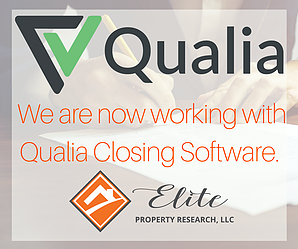When purchasing a home you may hear the word "escrow" being used frequently. And unless someone explains it, you may find yourself in the dark about what it exactly it is and what it is used for.
There are two distinct types of escrow accounts that you should be aware of. The first one comes into play during the home buying process, while the second one is specifically utilized by your mortgage servicer to handle all your property tax and insurance premium payments.
What is an Escrow account?
An escrow account acts as a crucial contractual arrangement where an impartial third party, commonly referred to as an escrow agent, is responsible for receiving and distributing funds on behalf of the parties involved in the transaction, such as the buyer and the seller. Typically, once a home price is agreed upon and a purchase agreement is signed, the selling agent initiates the opening of an escrow account through a trusted title company. This escrow account plays a dual role when purchasing a home:- To hold the deposit also known as earnest money while you’re in escrow most often this period is referred to as "in escrow"
- To handle and disburse the funds such as the profits from the sale, realtor commissions and mortgage payoffs. Once all escrow conditions are met the escrow will be closed.
The second type of escrow account involves lenders and mortgages. After you purchase a home you are responsible for maintaining insurance on the property and paying state and local property taxes. The risk involved for the mortgage company if you do not pay these required things is too large a risk for them. This is why they include escrow into your mortgage payments.
The amount of escrow due each month is based on your estimated annual property tax and insurance obligations, which may vary throughout the life of your loan.
What is an Escrow Balance?
Your escrow balance is the total amount currently in your escrow account that is held for payments your lender will make on your behalf. If at the end of the year when all payments are made if there if there overage or a shortage the escrow amount due each month may change.
What is an Escrow Shortage?
An escrow shortage is when the payments made each month were not enough to cover the balance due for your insurance and taxes. This will require the amount paid each month to be adjusted or your lender may allow for a one time lump sum payment to make up the difference.
What is an Escrow Refund?
Under the regulations of RESPA, there are limitations on the amount of money that can be held in an escrow account. However, if the funds in the account exceed the next payment plus two months' worth of payments, you have the right to request a refund. RESPA also states that the overage must be more than $50 in order for you to be eligible for a refund. If the overage is less than that, the mortgage servicing company has the option to retain the funds for future bill payments.
The real estate industry may seem confusing, but with your newfound knowledge, you are well-equipped to navigate the world of escrow with confidence.
f.png?width=609&height=200&name=Untitled%20design%20(15)f.png)
2.png)





.png?width=390&name=BLOG%20COVERS%20(7).png)
-1.png?width=390&name=BLOG%20COVERS%20(6)-1.png)
-1.png?width=390&name=BLOG%20COVERS%20(5)-1.png)
-1.png?width=390&name=BLOG%20COVERS%20(4)-1.png)

-1.png?width=390&name=BLOG%20COVERS%20(3)-1.png)


.png)








